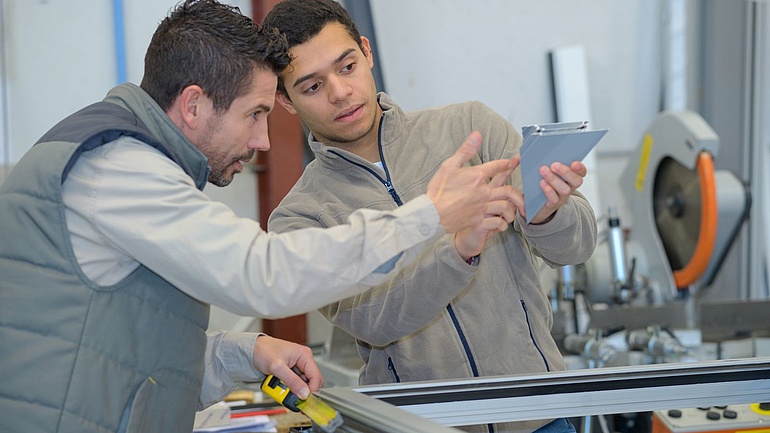Vocational Education and Training in Germany

Foto: AdobeStock/auremar
The skilled crafts sector is the leading provider of apprenticeships in Germany. The dual vocational training system, combining on-the-job experience with classroom-based learning at vocational schools, is unique. From day one, apprentices gain hands-on experience and directly apply the theoretical knowledge they learn. After three to three and a half years, apprentices take the journeyman’s exam.
Every journeyman has the opportunity to further their career through systematic career development plans, such as taking the Meister exam (Bachelor Professional). The Meister qualification is a professional and entrepreneurial certification comparable to an academic bachelor’s degree. It qualifies individuals to run a business and train apprentices.
Skilled workers with a journeyman or Meister certificate can choose from a wide range of further training options. Examples include the Business Administrator (HwO) qualification, aimed at entrepreneurs and managers, or the Restorer in Skilled Crafts (Master Professional), an internationally recognised professional development path. In all federal states, the Meister certificate also opens the door to study at universities of applied sciences and traditional universities.
Learn more about the German Qualifications Framework (DQR) and the European Qualifications Framework (EQF).
The German Meister Qualification - Overview


